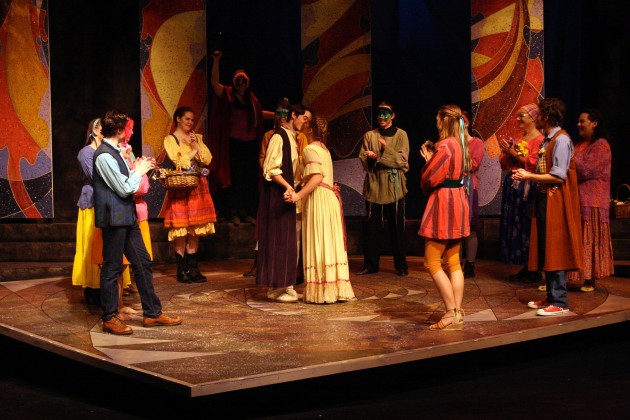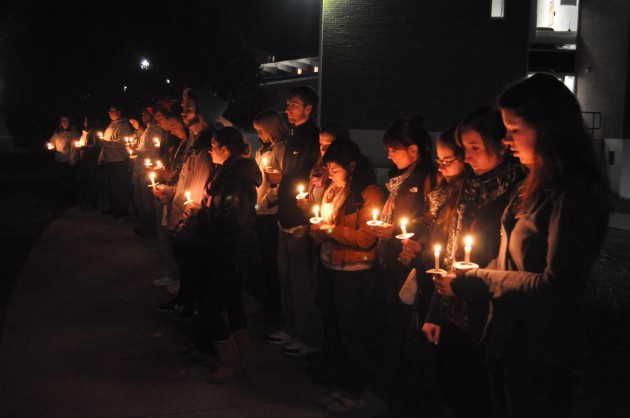Shakespeare’s The Winter’s Tale

The entire cast and crew of The Winter’s Tale should be proud of their Nov 9 performance. While the audience was less responsive than one could have hoped for, they succeeded in presenting a beautiful rendition of Shakespeare’s classic work.
A tale of suspicion and betrayal, the passage of time and the dangers of a jealous mind, this story is also one of love, humor and trickery.
As always Julianne O’Connor, Sarah Connor and Austyn Bevins delivered more than what many directors could ask for. They’re clear understanding of Shakespearian context and the flow of the language showed through in the intensity of their performances. Jeff Blanchette, who played Polixenes, is also worthy of this praise.
Eric Monzel, as Camillo, also added a great deal to the show. He performed with clarity, reflecting his own unique abilities to capture a character.
Playing the Shepard’s son and the first Sicilian Lord, Andrew Donovan was perfect for his roles. His clown like behavior as the Shepard’s son in contrast to his more serious role helped to showcase his talent, and add comic relief to contrast the more serious aspects of the tale.
Another partner in humor was Christopher R. Belanger, who embodied that of the rouge he played. His singing, his timing and his fitting facial expressions all moved the scenes forward with purpose. When he was on stage the audience seemed most responsive to his character.
Notable mention should go to many others in this production particularly Tyrone Davenport as the Shepard, Benjamin Villa, as Florizell, Meghan Hakey as Time, and Robynn Stanley, as Perdita. Another welcome treat to see outside of a classroom setting was Flo Keyes as the First Sicilian Lady.
What is the theatre experience if not for the costumes, the set design, the lights and the music? Although abstract, the modernism of both the costumes and the set played to the advantage of the story. Minimal and attractive, both succeeded in adding to the performance and sense of time period without being overly distracting. The same should be said about the music and the lighting.
The audience, however full of Soundings students, seemed as though they could have all used a spark-note session before they arrived for this established classic. With the whispers of “What’s going on?” and the lack of enthusiasm to match the performance, it was a disappointing display. And although not everyone is raised with a sense of etiquette, when the lights go down between scenes, particularly powerful ones, you clap! After all, Shakespeare is about more than a man in a bear suit, farcing it up for one scene—which is one the audience did react to and clap for.
Enough praise can’t be given to the actors for their performance. Shakespeare is not easy to speak in a coherent manner and at flowing pace, especially under pressure, in front of a crowd full of your peers.








